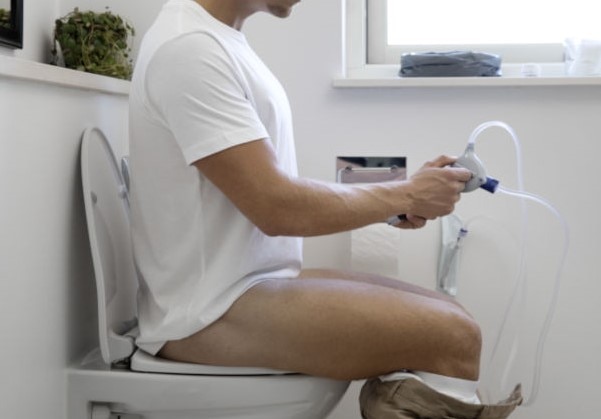Possible adjustments to your TAI routine
You need to give your body time to adjust to TAI at first, so you should not change your routine within the first weeks. After some time, it may be possible to adjust your transanal irrigation (TAI) routine to better suit your needs or further improve the results of your irrigations. After establishing your routine, only make changes after consultation with your doctor or nurse.
TAI routine adjustments you can make
As with many things, there is no one solution that fits all. Sometimes adjustments are in order. When doing transanal irrigations, you may feel it becomes necessary to adjust:
- The time of day you complete your irrigations
- The frequency of your irrigations
- The amount of water used in your irrigations
It can take between 1-3 months to establish a reliable and effective TAI routine. During this time, it is not uncommon to go through a process of trial-and-error to establish your own optimal parameters for irrigation.
Always discuss potential changes with your nurse or doctor so your individualised method works for you. Keeping track of your progress with an irrigation diary can help you to better assess what works for you and iron out bumps in the road. You can use then this as a prop when discussing your routine and successes during a consultation.

Signs you may need to adjust your TAI routine
There are several tell-tale signs that it may be necessary for you to adjust your TAI routine. However, always remember that it takes time for your bowel to settle into a new TAI routine and adjustments should not be made too often.
No stool is evacuated after TAI routine
Sometimes people find that they complete their TAI routine, and no stool is present. Whilst this may seem alarming, this may happen if a good result was obtained during the last irrigation. If this happens to you regularly, you may consider reducing the frequency of your irrigations. If however, you find no stool is passed for several days, this can indicate constipation and should be treated accordingly after consultation with a healthcare provider.
You are not continent between irrigations
If you find that you experience faecal incontinence between irrigations, it may be time to adjust your routine. Whilst the occasional accident may still occur, if this happens often, adjustments may be in order.
You may wish to adjust your routine by slightly increasing the volume of water you use in your irrigations. Check in with your healthcare provider before making any adjustments.
If you find yourself experiencing accidents between irrigations, you may also consider splitting your irrigations into two consecutive episodes, using part of the water volume each time. This can also improve the quality of the irrigation and ensure your bowel is ready for the day ahead.
Increasing the frequency of your irrigations may also be a suitable solution.

You leak water after an irrigation
If you find after completing your routine there is still residual water that leaks out there are several things you can do. First off, make sure that you allow sufficient time on the toilet so you can pass all the water. While individual, it takes on average 30 minutes for a person to empty their bowel during an irrigation, so if you find yourself getting off the toilet much earlier, you may need to extend your toilet time. For some people, it is also normal to need longer than 30 minutes to fully empty their bowel.
You may also want to try some additional measures to encourage emptying on the toilet. Abdominal massage and simple twists from side to side can help to stimulate the bowel and make sure all the water is passed before leaving the bathroom.
It is also possible to slightly reduce the amount of water instilled. If you leak water during the day, this may simply be a sign that your bowel does not need this much water to be comfortably irrigated and you are over filling your bowel.
Re-evaluating your diet and bowel habits
When TAI is unsuccessful, always take a moment to think a little deeper about your general bowel health. Consider your bowel routine as a whole, the key symptoms you are experiencing and your general diet and fluid intake. With this holistic picture of your health in mind, it may be time to discuss further treatment strategies with your nurse or doctor.
To get the most out of TAI, it is important to adhere to your TAI routine. Therefore, if you are to make alterations to your routine, you should always consult your doctor beforehand for guidance.
IMPORTANT – if you experience pain when irrigating, stop immediately and contact your nurse or doctor.


